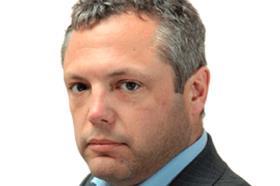The language is apocalyptic, ramped up by extreme heatwaves, floods and wildfires. A major summit on climate change set to take place in a few weeks is ‘make or break’ for the planet’s future, we are told.

In November, Glasgow will host COP26 - the largest gathering of world leaders in UK history. It will seek to agree drastic cuts to greenhouse gas emissions in the coming decades, accelerating action towards the goals of the Paris Agreement and the UN Framework Convention on Climate Change. In last week’s issue, and once again today, the Gazette has focused on what this means for lawyers.
As we have seen, the leading lights of the City are coming in for increasing criticism for representing major polluters – notwithstanding the inviolable principle that all are entitled to legal representation. This is especially difficult for the profession because such accusations cannot be dismissed as the exclusive preserve of extremists or cranks.
‘We’re not asking [major City firms] to dump clients on day one,’ Paul Watchman, a former Freshfields partner turned environmental activist, told the Gazette. ‘Maybe don’t accept instructions that relate to building a coal-fired power station in China’.
This type of extra-mural scrutiny is only going to become more intense – and not only with respect to climate change. As Alexander Rhodes, head of Mishcon de Reya’s sustainability practice, observes, we are moving towards a time when every business is to some extent ‘public’. Just as big companies in particular are expected to behave responsibly toward society, so too are their advisers.
We can, to take just one other example, detect the same trend in growing pressure on the same elite cadre of firms to stop acting as ‘facilitators’ of corruption by protecting ‘dirty money’. I refer you to a letter to the Financial Times last week from Professor Robert Barrington, of the Centre for the Study of Corruption at the University of Sussex. ‘It is clear that a number of law firms, from the magic circle downwards, are having navigational problems with their moral compass,’ he alleges. Harsh words.
Barrington does at least concede there are no ‘easy answers’ here. What is certain is that the questions are becoming more pointed.































2 Readers' comments